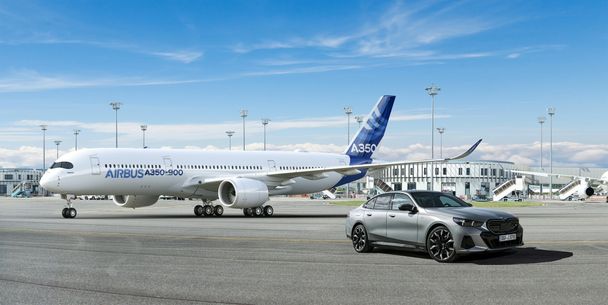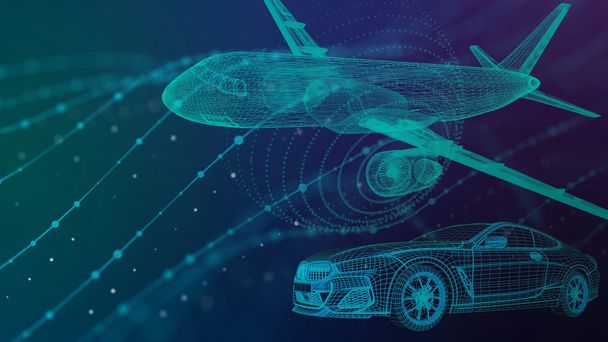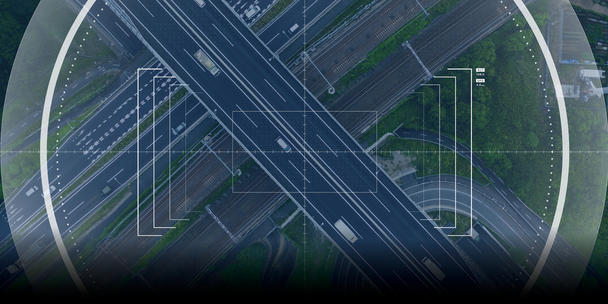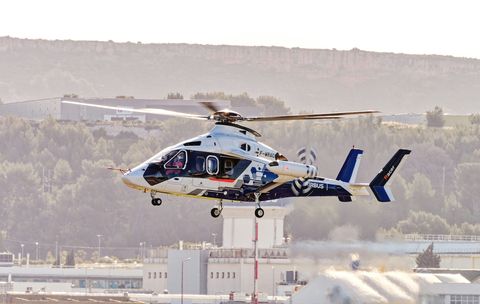Cars, planes and lightning-fast computing

Airbus and automotive giant BMW Group have joined forces to launch the Quantum Mobility Quest. This exciting initiative encourages the development of quantum computing solutions that one day could help the mobility sector solve its most complex challenges.
Revolutions don’t come along every day. Yet it’s no exaggeration to say that quantum technology has the potential to upend the transportation sector by transforming how mobility solutions are designed and operated.
A Quantum Quest
Classical computers have intrinsic limitations: today’s transistors are already microscopically small and cannot shrink much further. Quantum computers are different. Their fundamental logic units, instead of transistors, are quantum bits (qubits) that employ two quantum physics principles: superposition, and entanglement.
Superposition simply means that quantum systems can exist in multiple states simultaneously. Qubits can exist as zeroes and ones at the same time, as opposed to the one or zero binary of conventional computing.
Entanglement is when two or more quantum particles become correlated, regardless of the distance separating them.
Quantum computers therefore present two distinct advantages. First, they can address a ‘solution space’ – the set of solutions to a given problem – that is far, far bigger than anything the best supercomputers can process. Astonishingly, in principle just 250 qubits offer a solution space larger than the number of particles in the universe.
Second, quantum computers are fast. They can solve some problems in a fraction of the time it takes today’s highest performing classical computer. Encryption schemes that would take a supercomputer thousands of years to break could be unscrambled by a full-scale quantum computer in just a few hours.
The potential is evidently huge, even if there is some way to go. Yet with careful investment and the right ecosystem, Airbus and other early adopters are certain that quantum computers will one day produce breakthroughs to propel mobility into a sustainable future.

Shared Interests: The Airbus and BMW Group Quantum Mobility Quest
Turning quantum computing’s potential into applications calls for a network of academics, researchers and industry partners. Contributing to this community by sharing data and expertise, Airbus is helping to pioneer a new era of high-performance computing in keeping with its founding spirit.
That’s why the company is partnering with automotive giant BMW to launch the Airbus and BMW Group Quantum Mobility Quest. Both companies share similar industrial and societal drivers, including decarbonisation, safety and connectivity.
The Quantum Mobility Quest is the first of its kind: an initiative between two manufacturing powerhouses to apply the power of a global quantum computing ecosystem to real-life challenges.
How does quantum relate to mobility?
Airbus is focusing on four application areas: quantum simulation, quantum optimisation, quantum machine learning, and quantum solvers. Each holds promise for future quantum computing applications.
An example of a Mobility Quest use case: quantum computing is able to efficiently predict reactions at the molecular level, such as how materials will change during chemical reactions. This helps further our understanding of corrosion, or predict the chemical reactions within a hydrogen fuel cell.
Today, these reactions have to be computed in costly laboratory conditions. Even then, they produce limited results. Quantum computing, on the other hand, has the potential to make supremely accurate predictions at unprecedented speed.

Challenge FAQs
What are the Quantum Mobility Quest’s objectives?
To develop and apply quantum computing solutions to future mobility.
To strengthen our ties with the global quantum and data sciences communities, offering access to the complex computational puzzles we need to mature quantum technology at a competitive pace.
To increase visibility of automotive and aerospace use cases, applications and their potential positive impact on how we design, build and operate aircraft and automobiles.
To attract the brightest talents in the field of quantum computing, in the service of sustainable future mobility.
To foster innovative approaches currently unexplored within the scientific community.
Who is the Quest targeting?
We’re seeking the best-in-class students, PhDs, academics, researchers, start-ups, companies and professionals in the field, worldwide, to join our challenge.
What are its themes?
Candidates are invited to select a problem statement: improved aerodynamics design with quantum solvers; future automated mobility with quantum machine learning; more sustainable supply chain with quantum optimisation; and enhanced corrosion inhibition with quantum simulation. A final challenge is to design the Golden App, to push the boundaries of quantum technology for mobility.
How does the Quest work?
Hosted by The Quantum Insider and supported by Amazon Web Services, the Challenge launched in Silicon Valley on 6 December 2023 at the Q2B, the largest QC application conference worldwide. The Quantum Mobility Quest will last roughly a year, at which point an awards ceremony will be held.
How do I apply?
Submissions will be accepted from mid-January 2024 through 30 April 2024. Apply here: www.thequantuminsider.com/quantum-challenge.



